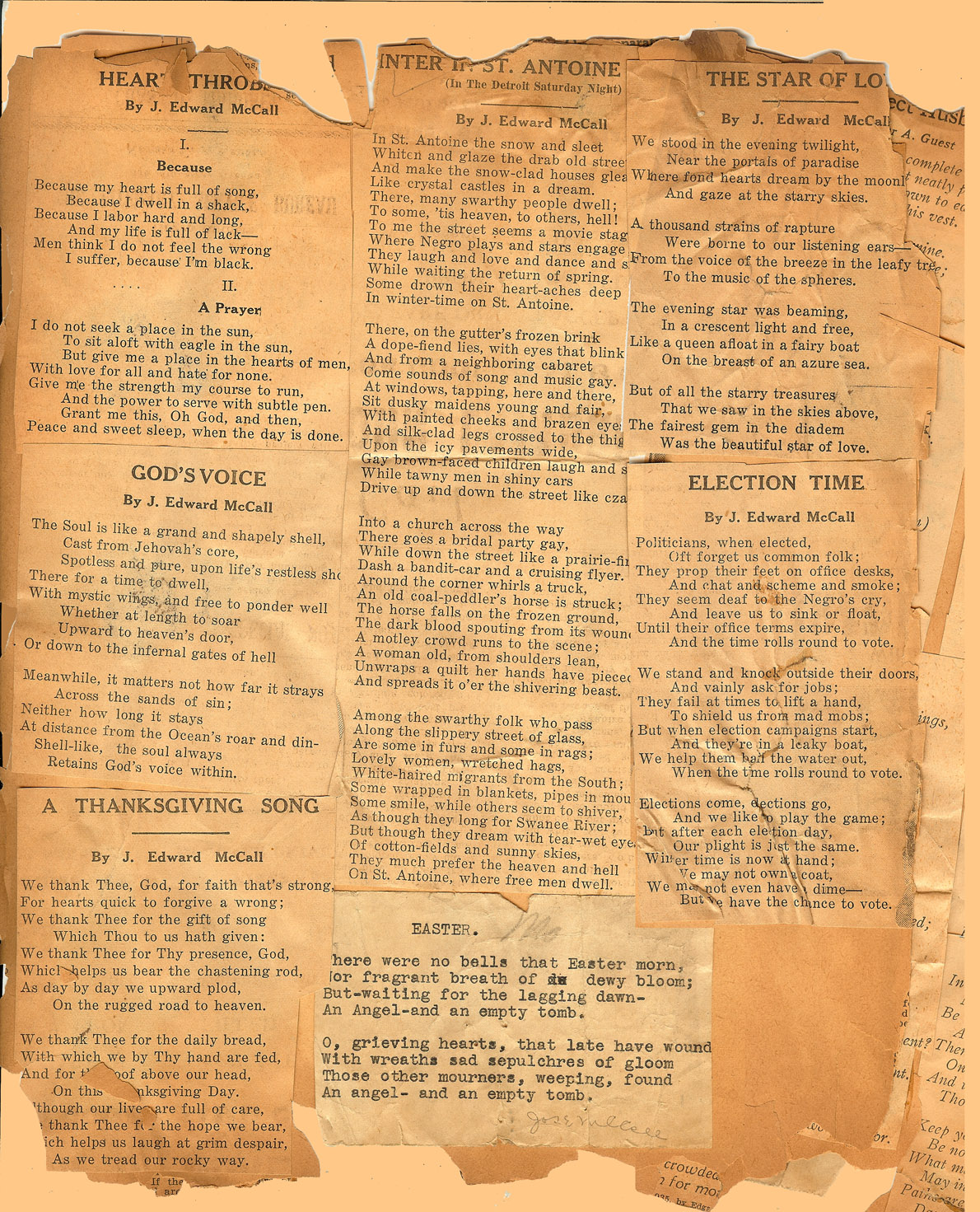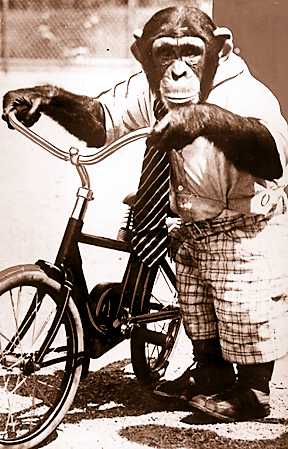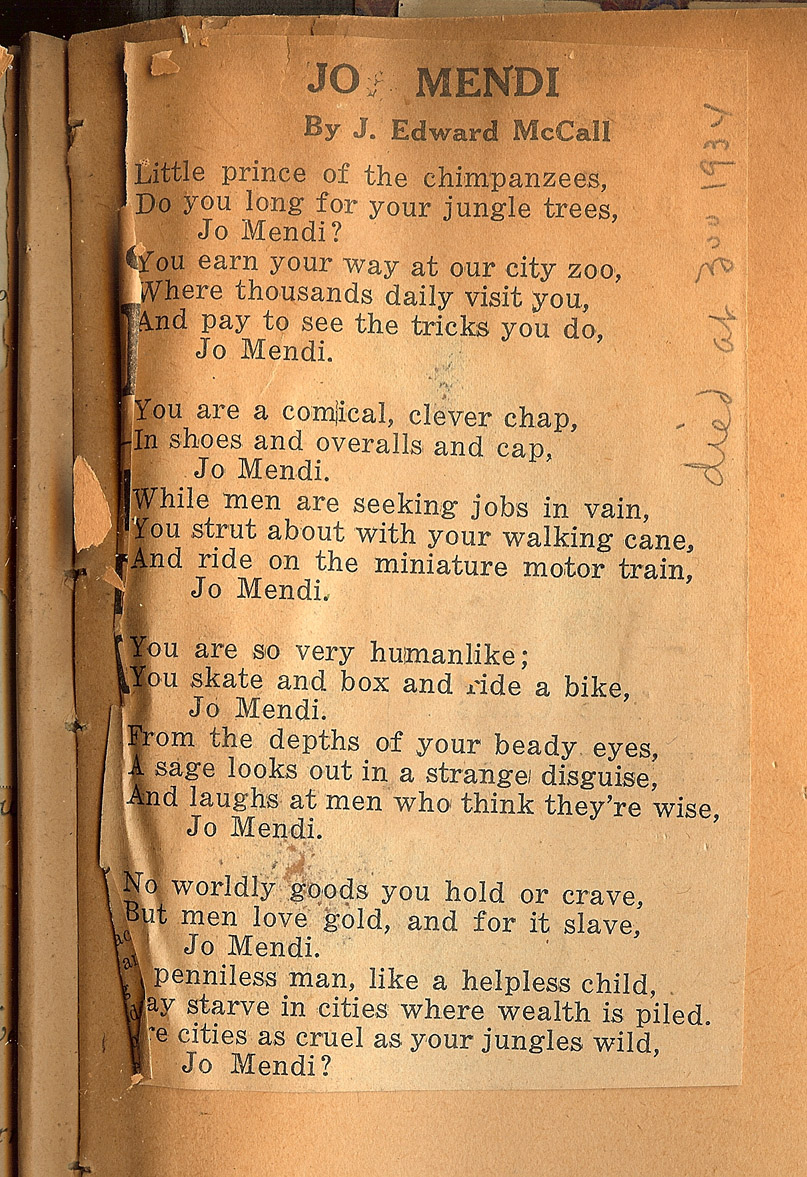Louis Cleage Responds Poetically to “Two Songs” by Gary Grimshaw
During the 1960s, my uncles owned and operated Cleage Printers. It was what was known as a “job printer,” meaning that it didn’t print books, but rather printed handbills for neighborhood markets and flyers, newsletters, magazines and pamphlets for various radical groups, including the black nationalist Group on Advanced Leadership (GOAL), the Trotskyist Socialist Workers Party (SWP) and the Detroit Artists Workshop, a countercultural collaborative.
The printing plant was a place where people came to find discussion of the issues of the day and there were plenty of issues to discuss. My uncle Henry loved to hold forth on a variety of topics and his arguments were always well thought out and convincing. Hugh didn’t talk a lot, but he would have something to put in, maybe just a quiet shake of his head over what Henry was saying.
Their brother Louis Cleage was a doctor and his office was about 10 feet in front of the printing plant. When he came back, he would join in with his sarcastic comments and distinctive laugh. And surprising to me, my uncle Louis wrote poetry.
On Oct. 6, 2019, my good friend historian Paul Lee, who likes to consider himself an “honorary Cleage,” sent me an email with a copy of a poem that my uncle Louis had written.
I was so surprised because with all of Louis’ talents, I never knew that he wrote poetry. I immediately began to search for the poems that he was responding to, which were written by Detroit graphic artist and radical political activist Gary Grimshaw.
After Googling and looking for Work 4, where Grimshaw’s poems appeared, I found that the Flickr photostream of “jwc 3o2” (Canadian “cultural factotum” jw curry) had a copy of the cover (designed by Grimshaw) and wrote to ask him if he had the whole work and could send me a copy of the poems. He very kindly dug out his copy of Work 4, made a copy of the poems and sent them to me. You can see the cover and the poems by both Grimshaw and Louis below.
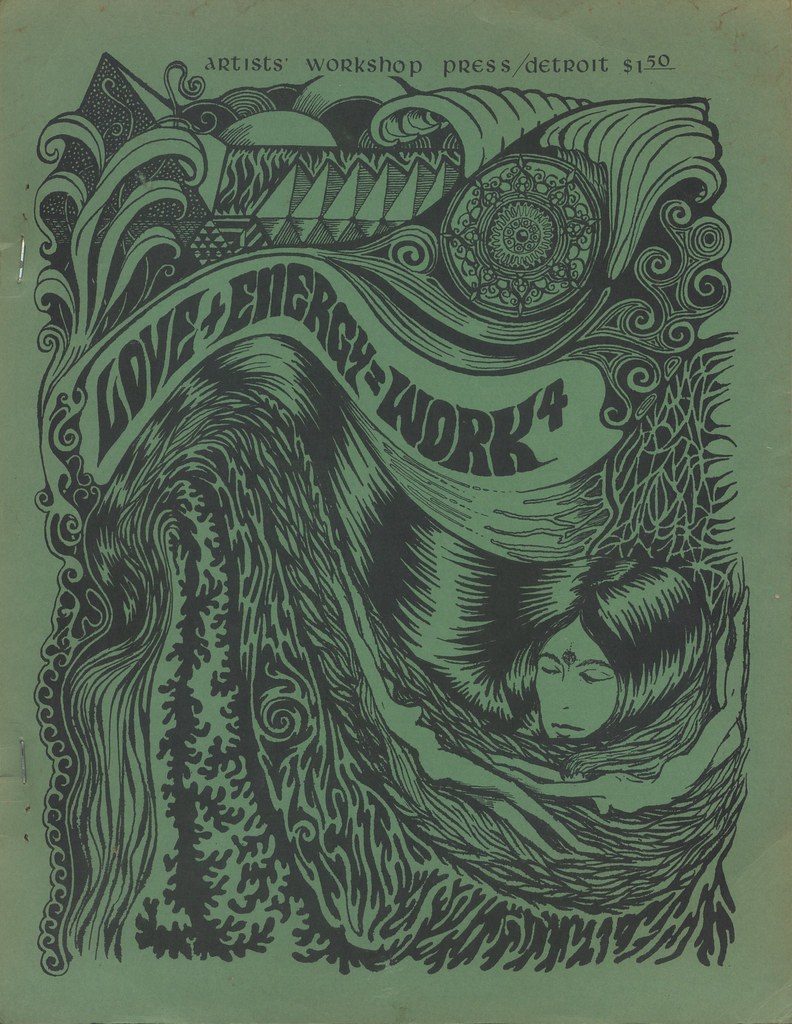
Two Songs by Gary Grimshaw
You’ve made your responsibilities
To wash your car and mow your lawn
While I’ve made mine
To stay excited about being alive
And you don’t understand
Why I won’t stay home
Without seeing it happen
You’ve slipped into the norm
While I’ve kept my eyes open
For the pleasure of new things
And you don’t understand
Why I am different from the rest
In the name of reason
You’ve drained the joy from life
While I make mistakes
Because I won’t listen to advice
From a dying generation
And you wonder why
I stare at the floor when you speak
August 2
“Prove yourself!” yells the Queen of Morality
In her castle on the hill of broken dreams
“But there’s nothing to prove!” I yell back
From my midnight ancient cellar
As the King slips off to the prison factory.
The Queen’s daughters know the virtue of work
They dream of an effortless struggle
Against inactivity and doubt
Carried on in calm organization
Won by merciless repression.
The King once was young, like me
I often think of him this way
Before he volunteered to die
His funeral went unnoticed
In the steady hum of the factory
Where he surrendered to Chief Reason
And succeeding days drove out whim and fancy
Leaving him with What Is and nothing more
What Is, the terrible master.
August 12
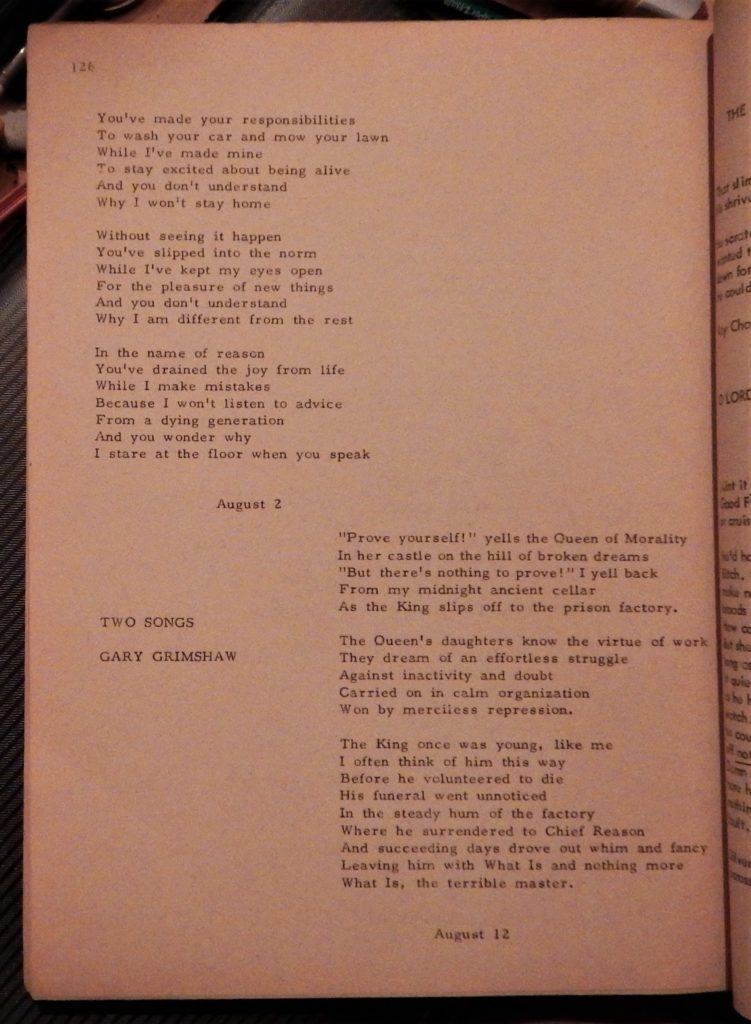
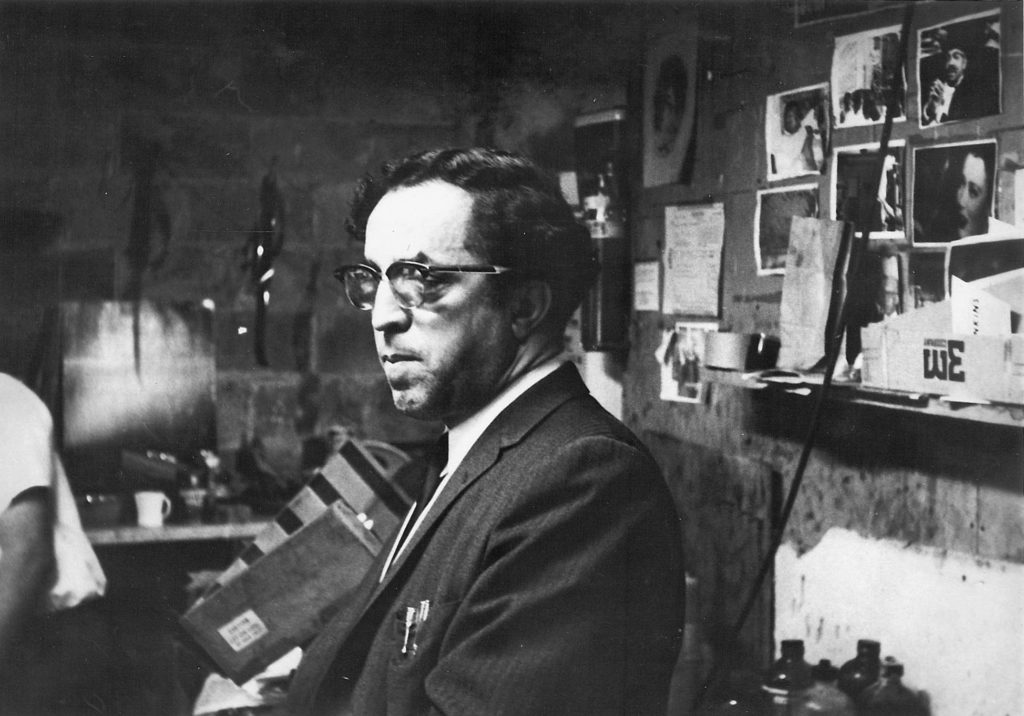
A Comment on “Two Songs by Gary Grimshaw“
I heard your song, my son
so clear and yet so lonely in the night.
The enchantment of its melancholy beauty
Transported me through space and time
to moon-lit waters of a blue lagoon.
In the quiet of the night, a golden maiden
played a dulcimer. A nightingale
sang a song of youth and beauty
that stirred my senses with such violence
as to test the very sinews
that bound me to my reason.
I was once again the young King in the timeless land.
The golden maiden was my queen.
Though now, we are as strangers when we meet,
I understand that you are different from the rest.
In the quiet of the night, when the beauty
of your song stirs my heart,
My lonely soul cries out to you, my son,
—-for understanding.
Louis J. Cleage, M.D.
Detroit 3/27/67
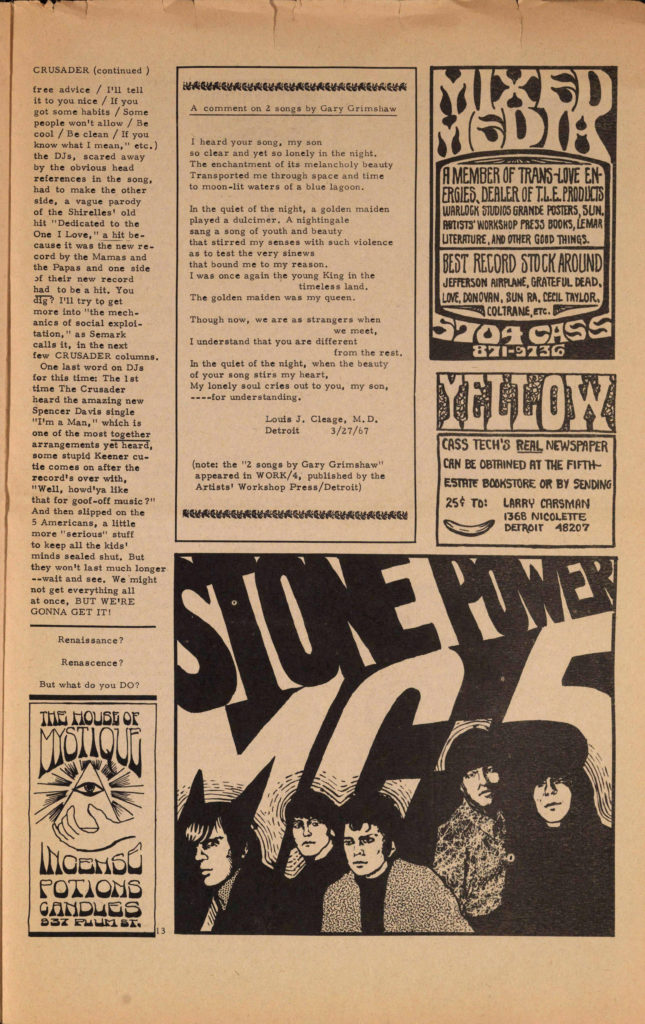
_______________________
Header photograph is of the Cleage Clinic (front brick building) with Cleage Printers (gray cement block building) in the back. I photoshopped it from a Google Maps view from July 2009.
I would like to thank Paul Lee for the additional information that he sent me, which I have incorporated into this post.
Click these links for more information:
Cleage Printers
Gary Grimshaw
Louis Cleage



